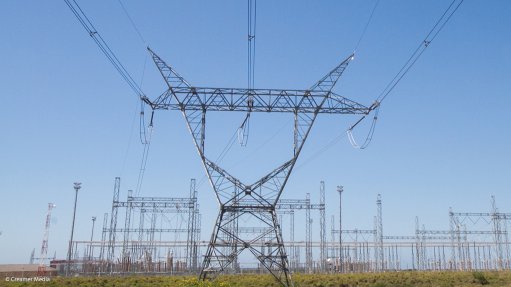Forum highlights pressing need for South Africa to invest more in research
Considering the importance of research and innovation for South Africa’s development, there is a pressing need to encourage research and inspire young people to pursue careers in various fields of research.
With this in mind, the National Science and Technology Forum’s (NSTF’s) national online discussion forum, held on August 13 to 14, focused on current challenges in research, development and innovation (RDI) systems in South Africa.
The forum explored the various obstacles facing the country, which hinder the national system of innovation (NSI) and affect the country's various RDI systems. It noted that challenges include a lack of funds, rapid technological changes, infrastructure deficiencies and commercialisation barriers.
The NSTF posited that such challenges posed a threat to South Africa’s economic future, prompting a collaborative effort among various stakeholders and policymakers, to create a more enabling environment for RDI.
The discussion forum convened stakeholders from across the science, engineering, technology and innovation sectors, serving as a platform to identify critical challenges; propose solutions; promote sustainability; empower young researchers; strengthen collaboration; and engage policymakers.
Speaking on challenges in cancer research and innovation, Nuclear Medicine Research Institute president and CEO Professor Mike Sathekge discussed the need for innovative and collaborative approaches in cancer care and research in South Africa.
He argued that “research is a key driver of better care and is no longer a luxury, but a necessity”, noting some challenges of current cancer services in South Africa.
These include limitations in service delivery; health workforce; information; medical products, vaccines and technologies; financing; and leadership and governance.
“We should redefine innovation in cancer research, which means we should understand the broader context, the problems that are there, the problems that we face.”
Sathekge thus argued for an interdisciplinary or transdisciplinary approach in addressing these challenges. He also discussed the importance of effective, innovative collaboration in driving innovation.
He posited that innovation could also take place with the repurposing of existing resources, thereby maximising benefits to patients.
Also speaking at the discussion, South African Nuclear Energy Corporation (Necsa) group executive Dr Pradish Rampersadh spoke on the topic of ‘Changing the innovative mindset at State-owned entities’, discussing some of the RDI challenges facing State-owned entities in South Africa.
These include bureaucracy and a silo mentality; technology limitations; resistance to change and risk aversion; as well as lack of resources and incentives for development and innovation.
He noted that, in the last financial year, Necsa had gone from running at a loss to an organisation that was turning a profit, noting that the organisation had experienced a “complete change in mindset,” crediting positive changes to the group CEO Loyiso Tyabashe.
Rampersadh explained that the organisation adopted a disruptive and incremental approach to innovation, noting that some of the strategies for changing the mindset at Necsa included leadership commitment, building a culture of innovation, and training and development.
The organisation also adopted cross-departmental teams and knowledge sharing to foster collaboration; partnerships with private sector, academia, and other government bodies; and addressed human resource concerns.
“Strong leadership is critical in this organisation . . . you need to have a clear, shared vision also. Everybody needs to work together, everyone needs to own this. Communication is critically important,” he said.
“And finally, we realised we have to be constructively disruptive. We have to say, You know what? We have been doing this in a particular way for so long. What can we change? How should we change it? I believe this approach has resulted in Necsa seeing a major turnaround, and this is only the start for us,” he added.
Article Enquiry
Email Article
Save Article
Feedback
To advertise email advertising@creamermedia.co.za or click here
Comments
Press Office
Announcements
What's On
Subscribe to improve your user experience...
Option 1 (equivalent of R125 a month):
Receive a weekly copy of Creamer Media's Engineering News & Mining Weekly magazine
(print copy for those in South Africa and e-magazine for those outside of South Africa)
Receive daily email newsletters
Access to full search results
Access archive of magazine back copies
Access to Projects in Progress
Access to ONE Research Report of your choice in PDF format
Option 2 (equivalent of R375 a month):
All benefits from Option 1
PLUS
Access to Creamer Media's Research Channel Africa for ALL Research Reports, in PDF format, on various industrial and mining sectors
including Electricity; Water; Energy Transition; Hydrogen; Roads, Rail and Ports; Coal; Gold; Platinum; Battery Metals; etc.
Already a subscriber?
Forgotten your password?
Receive weekly copy of Creamer Media's Engineering News & Mining Weekly magazine (print copy for those in South Africa and e-magazine for those outside of South Africa)
➕
Recieve daily email newsletters
➕
Access to full search results
➕
Access archive of magazine back copies
➕
Access to Projects in Progress
➕
Access to ONE Research Report of your choice in PDF format
RESEARCH CHANNEL AFRICA
R4500 (equivalent of R375 a month)
SUBSCRIBEAll benefits from Option 1
➕
Access to Creamer Media's Research Channel Africa for ALL Research Reports on various industrial and mining sectors, in PDF format, including on:
Electricity
➕
Water
➕
Energy Transition
➕
Hydrogen
➕
Roads, Rail and Ports
➕
Coal
➕
Gold
➕
Platinum
➕
Battery Metals
➕
etc.
Receive all benefits from Option 1 or Option 2 delivered to numerous people at your company
➕
Multiple User names and Passwords for simultaneous log-ins
➕
Intranet integration access to all in your organisation


















